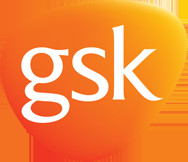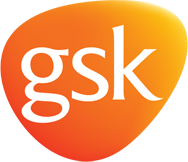
Last week, GlaxoSmithKline, the giant among the “London-listed pharmaceuticals”, reported of its “evolving” approach towards “filing and enforcing patents”, whereby reflecting “a country’s wealth” through “IP protection”.
Before the “UN High Level Panel” meeting discussing on “Access to Medicines”, the pharmaceutical informed that it will not “file patents for its medicines” in the countries where the either the income is low or is among the “least developed” countries. In this way, other companies will get a chance to create “cheaper generic versions” of Glaxo’s medicines for selling in those countries.
However, when the question comes to the “lower middle income countries”, Glaxo decides to file patent, although it will be offer license or agree to allow license for the sale of “generic versions of its medicines” over a decade. In fact, Glaxo has plans of seeking a small portion of royalty on the above mentioned sales.
Eventually, for the “high income”, “upper middle income” as well as G20 countries, Glaxo will maintain its “full patent protection”, while:
“Any Glaxo drugs on the WHO’s list of essential medicines will be included in these changes”.
In the words of the chief executive e officer of Glaxo, Sir Andrew Witty:
“In itself, IP is not a barrier to access to medicines. However, we recognise that the global healthcare challenge requires us to be flexible in our approach and responsive to different needs, particularly as the disease burden shifts from infectious to non-communicable diseases.
“We continuously look at ways that GSK can further contribute to increasing access to medicines.”
Moreover, Glaxo made an announcement of allowing the “developing countries” to access its “next-generation cancer drugs”, whereby it will allow “competitors to access its intellectual property through the UN-backed Medicines Patent Pool”.
References:
http://www.digitallook.com/
Before the “UN High Level Panel” meeting discussing on “Access to Medicines”, the pharmaceutical informed that it will not “file patents for its medicines” in the countries where the either the income is low or is among the “least developed” countries. In this way, other companies will get a chance to create “cheaper generic versions” of Glaxo’s medicines for selling in those countries.
However, when the question comes to the “lower middle income countries”, Glaxo decides to file patent, although it will be offer license or agree to allow license for the sale of “generic versions of its medicines” over a decade. In fact, Glaxo has plans of seeking a small portion of royalty on the above mentioned sales.
Eventually, for the “high income”, “upper middle income” as well as G20 countries, Glaxo will maintain its “full patent protection”, while:
“Any Glaxo drugs on the WHO’s list of essential medicines will be included in these changes”.
In the words of the chief executive e officer of Glaxo, Sir Andrew Witty:
“In itself, IP is not a barrier to access to medicines. However, we recognise that the global healthcare challenge requires us to be flexible in our approach and responsive to different needs, particularly as the disease burden shifts from infectious to non-communicable diseases.
“We continuously look at ways that GSK can further contribute to increasing access to medicines.”
Moreover, Glaxo made an announcement of allowing the “developing countries” to access its “next-generation cancer drugs”, whereby it will allow “competitors to access its intellectual property through the UN-backed Medicines Patent Pool”.
References:
http://www.digitallook.com/





